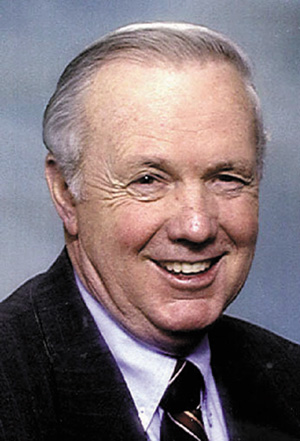No. 599 - THE LEGACY OF FORD MOTOR COMPANY
No 599
Jim Davidson — NEWSPAPER COLUMN
THE LEGACY OF FORD MOTOR COMPANY
It’s often been said that we should never forget our roots. This can be said of a person, a family, a business or an organization. To say it another way, when a person, a family, a business or an organization works hard and achieves outstanding success, they should never forget where they came from and how they got there.
I’m sad to say that a good example of this in today’s times is the troubling situation at Ford Motor Co. In 2006, Ford lost $12.7 billion, was in the process of cutting 45,000 jobs from the company’s 300,000 employees and was closing eight of its 108 plants and facilities worldwide.
Ford is based in Dearborn, Mich., just outside Detroit, and was founded by Henry Ford and incorporated in 1903. It was launched that year in a converted wagon factory with $28,964 in cash from 12 investors. In the early years, the company produced only a few Model As each day, as groups of two or three men worked on each car from components made to order by other companies. In later years Ford introduced methods for large-scale manufacturing of cars and large-scale management of an industrial work force, especially elaborately engineered manufacturing sequences typified by moving assembly lines.
In more recent times, something has gone terribly wrong, and what has happened not only to Ford but to the entire American automobile industry has had a great impact on us. We know that foreign competition, especially from Japan, has eroded the American market and it’s a very complex problem. We may be able to see a part of the answer in this modern fable that a friend sent me the other day.
It goes: “It seems a Japanese company (Toyota) and an American company (Ford) decided to have a canoe race on the Missouri River. Both teams practiced long and hard to reach their peak performance before the race.
“On the big day, the Japanese won by a mile. The Americans, very discouraged and depressed, decided to investigate the reason for the crushing defeat. A management team made up of senior management was formed to investigate and recommend appropriate action. Their conclusion was that the Japanese had eight people rowing and one person steering, while the American team had eight people steering and one person rowing. So American management hired a consulting company and paid them a large amount of money for a second opinion.
“They advised that too many people were steering the boat, while not enough people were rowing. To prevent another loss to the Japanese, the rowing team’s management structure was totally reorganized to four steering supervisors, three area steering superintendents and one assistant superintendent steering manager. They also implemented a new performance system that would give the one person rowing the boat greater incentive to work harder. It was called the ‘Rowing Team Quality First Program’, with meetings, dinners and free pens for the rower.
“There was discussion of getting new paddles, canoes and other equipment, extra vacation days for practices and bonuses. The next year the Japanese won by two miles. Humiliated, the American management laid off the rower for poor performance, halted development of a new canoe, sold the paddles and canceled all capital investments for new equipment. The money saved was distributed to the senior executives as bonuses and the next year’s racing team was outsourced to India.”
From my heart, it gives me no joy to share things of this nature, because the demise of Ford, and to some degree GM and
Chrysler, adversely affects so many American families. Hopefully we can all learn from our past mistakes and take time to remember our roots in every area of American life. There is no substitute for quality.
———
(EDITOR’S NOTE: Jim Davidson is a motivational speaker and syndicated columnist. You may contact him at 2 Bentley Drive, Conway, Ark. 72034. To support literacy, buy his book, “Learning, Earning & Giving Back.”)
